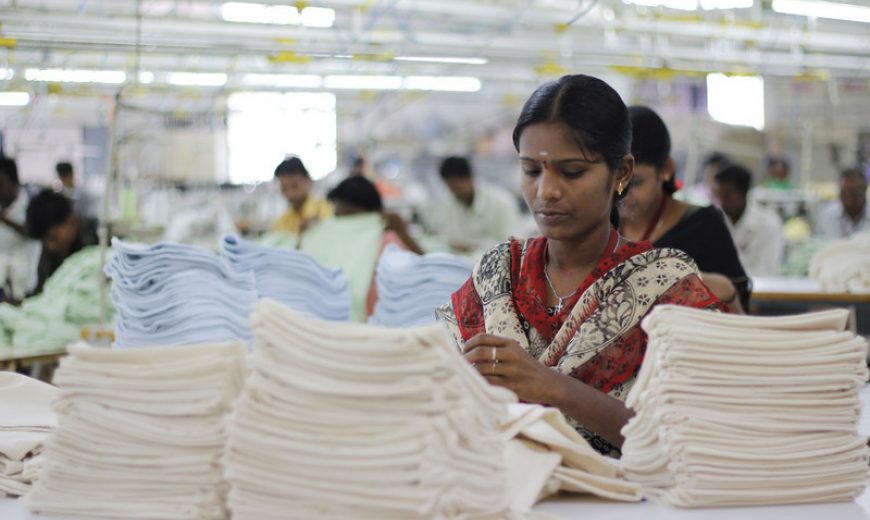Contact the communications team
E-Mail: press@fairtrade.net
22 Mar 2016

Almost three years after the deadly collapse of the Rana Plaza textile factory in Bangladesh, little has changed for the workers themselves. The tragedy, which killed more than 1100 and injured 2500, sparked demands for better protection - but many garment workers still have to endure dangerous conditions and low pay.
Fairtrade’s new Textile Standard and Programme are designed to tackle these challenging working conditions by extending the Fairtrade approach to the entire textile supply chain. "By committing to Fairtrade, companies can now help improve the social and economic wellbeing of workers across the entire production chain," says Martin Hill, Interim CEO at Fairtrade International.
The new standard is based on Fairtrade’s existing Hired Labour Standard and focuses on working conditions, living wages and workers’ rights, and is open to other sustainable fibres as well as cotton. It’s the first standard to require living wages to be paid within a set time period – six years - and brand owners will also be contractually responsible for fair and long-term purchasing practices - essential for implementing wage increases. Overall, the standard aims to empower factory workers and enable them to negotiate labour conditions independently.
The new standard is the first step towards implementing a comprehensive Fairtrade Textile Programme to change textile supply chains and related business practices. The programme will be similar in concept to the producer services provided to farmers and workers, but will be specific to textile factories. Following an initial assessment, factories will be supported to meet the standard's requirements.
"It is important for factory owners and workers to understand the standard's content as well as the purpose of Fairtrade. That's the main challenge when implementing the standard and running local training sessions," says Siva Parti, Environmental and Health & Safety expert at Sustainable Textile Solutions. The programme also offers support in various areas including health and safety, worker empowerment, living wages, and improvements in efficiency and productivity.
FLOCERT, the independent certification body for Fairtrade, will audit the textile companies. Workers in the textile industry participate in these audits through elected representatives who inform the workforce of the results. FLOCERT only uses auditors who are particularly familiar with the complex procedures in the textile production. "Our auditors are experts in their fields. They work together with the factory workers and management to come up with solutions to improve the workers' situation," says FLOCERT’S CEO Rüdiger Meyer.
Fairtrade is currently negotiating with interested companies and hopes to announce commitments soon. The standard is applicable from June 2016. "We’re inviting all textile companies to work together with their staff and with Fairtrade to create a fairer production process for textiles," says Martin Hill. Once their entire supply chain has been certified in line with the Fairtrade Textile Standard, products will carry the Fairtrade Textile Production Mark. Product packaging will also indicate the brand’s progress towards achieving living wages in the product supply chain.
Further details on the Fairtrade Textile Standard and Programme can be found on the Textile Standard webpage, including an explanation of the living wage methodology applied by Fairtrade.
For a more detailed external view on the new Fairtrade textiles approach, please read our full interview with Dr. Siva Pariti.
E-Mail: press@fairtrade.net